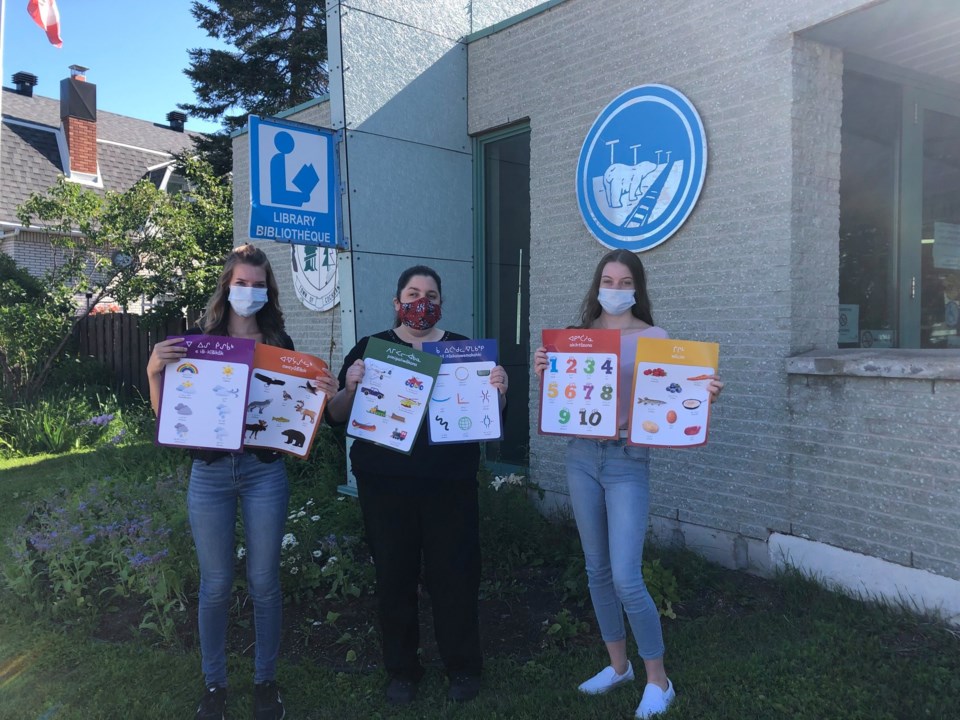Mary Jane Archibald is on a mission to preserve Cree language and culture.
As a business owner of CreeMij Designs, Archibald sells craft supplies, beads and medicines used in ceremonies. For the past several years, she’s been donating 15 per cent of her proceeds towards helping revitalize Cree culture and language in local communities.
She recently partnered with Moose Cree’s language workers to create and print Cree language posters in the “L” dialect.
“The language is part of our culture. A big part of our culture and ceremony is tied to language, it helps to define our identity and history,” Archibald said. “It helps conserve our customs and our unique way of thinking, living.”
There are six type of posters depicting food, weather, vehicles, animals, numbers and directions. Archibald said 150 posters of each of the six types were printed and donated to various organizations and community programs.
Over the past few weeks, posters were donated to Timmins Native Friendship Centre, Cochrane Public Library, Taykwa Tagomou First Nation, Cochrane’s daycare and a family resource centre as well as to a high school and a public school in Cochrane.
Posters were also delivered to a director of language and cultural programs at Moose Cree First Nation Geraldine Govender who then distributed them to local schools, organizations and programs.
“It’s my passion to bring that language back and do whatever I can to help people revitalize our language,” Archibald said.
The Ininew Friendship Centre, where Archibald works as a cultural resource co-ordinator, also created the Cree Word of the Day project and organized the inaugural Aski Oteesheekeeshwaywin: Our Lands Language Conference held in October last year.
With the COVID-19 pandemic, it’s unknown how the conference will be held this year but organizers are going to come up with something that will be “enjoyable for everyone,” Archibald said.
The centre also received Canadian Heritage funding and, in partnership with Moose Cree, translated and published two children’s books in the “L” dialect. One is called “Little Froggy” and another is called “The Skunk,” Archibald said.
“These books are going to be tied to an app that you’re able to have that app read the book or words of the book to help you with pronunciation,” she said.



